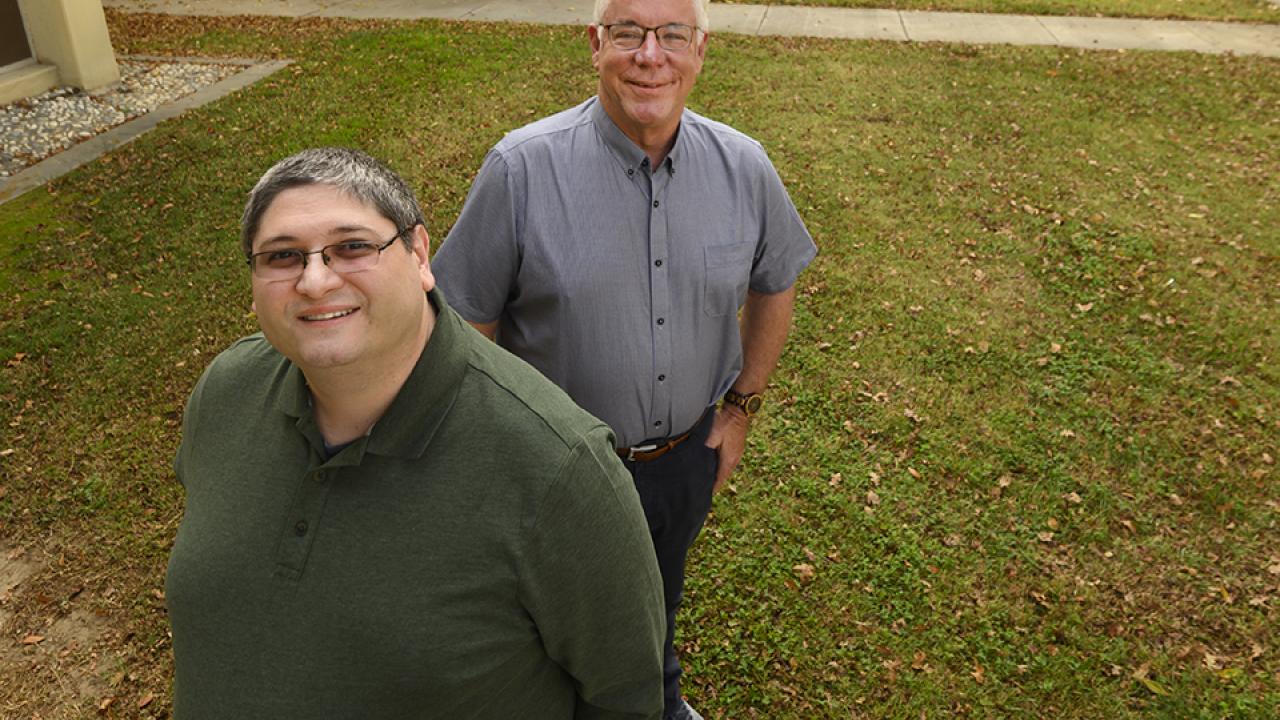Michele Barbato, professor of civil and environmental engineering, and Eric Prebys, professor of physics, are leading projects that will receive more than $6 million over three years from the University of California Laboratory Fees Research Program competition.
The annual competition is designed to promote the development of multicampus projects and collaborations that advance the missions of the national laboratories and University of California. Six proposals in total received funding in three targeted areas of research: accelerator research, quantum information science, and wildfire-related research.
Barbato, who joined the UC Davis faculty in the fall of 2018, will be leading a team to develop a state-of-the-art scalable framework for assessment and mitigation of wildfire-induced air pollution.
“After moving to California last year and seeing the devastating impacts of the Camp Fire, I was compelled to try to help through my research,” said Barbato.
During the Camp Fire of November 2018, California's Central Valley filled with a deep reservoir of smoke, and registered the most polluted air on the planet, with air quality levels in many parts of the valley in the “hazardous” range.
Other institutions collaborating with Barbato on the project include scientists from UC Merced, UCLA, UC Irvine, UC Berkeley, Lawrence Livermore National Lab, Los Alamos National Lab and the Electric Power Research Institute, or EPRI.
“This proposal was a great team effort. We aim to contribute new and innovative research through this multi-disciplinary collaboration to advance our understanding of wildfires and wildfire-induced air pollution, and develop innovative mitigation strategies for these terrible events. We hope to eventually help inform California’s response to wildfires,” said Barbato.
In addition to $3.75 million provided by the UC Office of the President, the wildfires project will receive an additional $1.05 million from Lawrence Livermore National Lab, Los Alamos National Lab and EPRI.
Synthetic diamonds in physics research
Prebys, who is also the director of the UC Davis Crocker Nuclear Laboratory, is leading a project to develop a new tool based on synthetic diamond semiconductors that will be used to evaluate the performance of particle accelerators and X-Ray Free-Electron Lasers, known as XFELs.
Although diamonds are mostly thought of as jewelry, synthetic diamonds are being explored for semiconductors because of their unique properties. Structurally identical to diamonds, synthetic diamonds are produced by a controlled process, as compared to natural diamonds, which are created by geologic processes.
The cyclotron at the Crocker Nuclear Lab will be used as a test bed for these new detectors. The detectors will also be used to study physics related to the formation and acceleration of the beam in the cyclotron, which will benefit other ongoing and future research at the lab.
Collaborating institutions for the advanced detectors project include UC Irvine, UC Santa Barbara, UC Santa Cruz, Los Alamos National Laboratory and Lawrence Berkeley National Laboratory. The project will receive $2.5 million over three years.
“This project leverages the unique expertise at each of the collaborating universities and labs, particularly the expertise in diamond detector development at Los Alamos” said Prebys. “I’m very excited to be working with these institutions and this group of collaborators.”
Media Resources
Andy Fell, News and Media Relations, 530-752-4533, ahfell@ucdavis.edu
